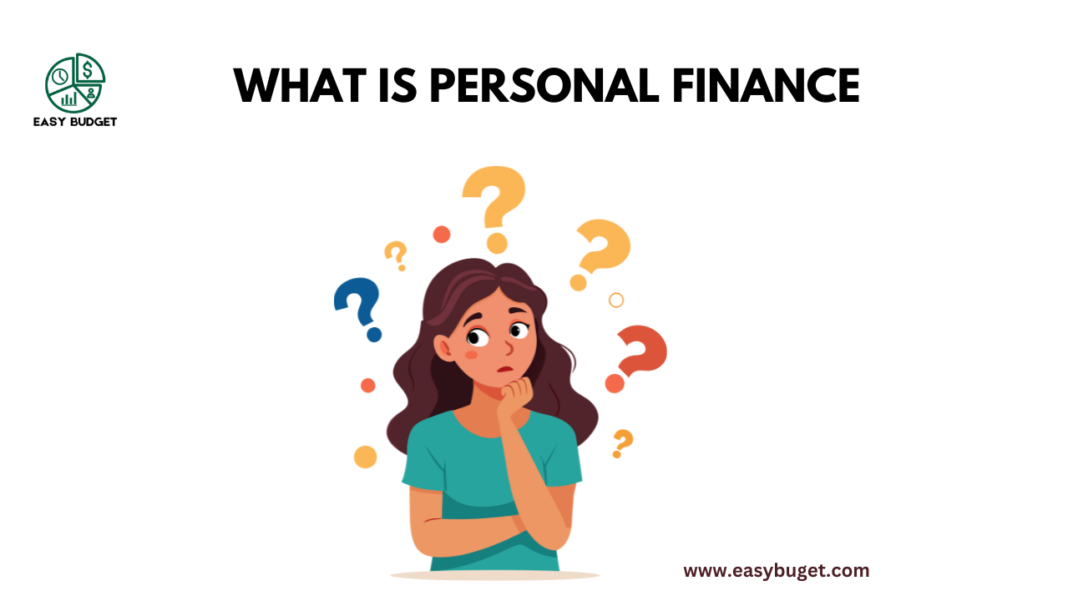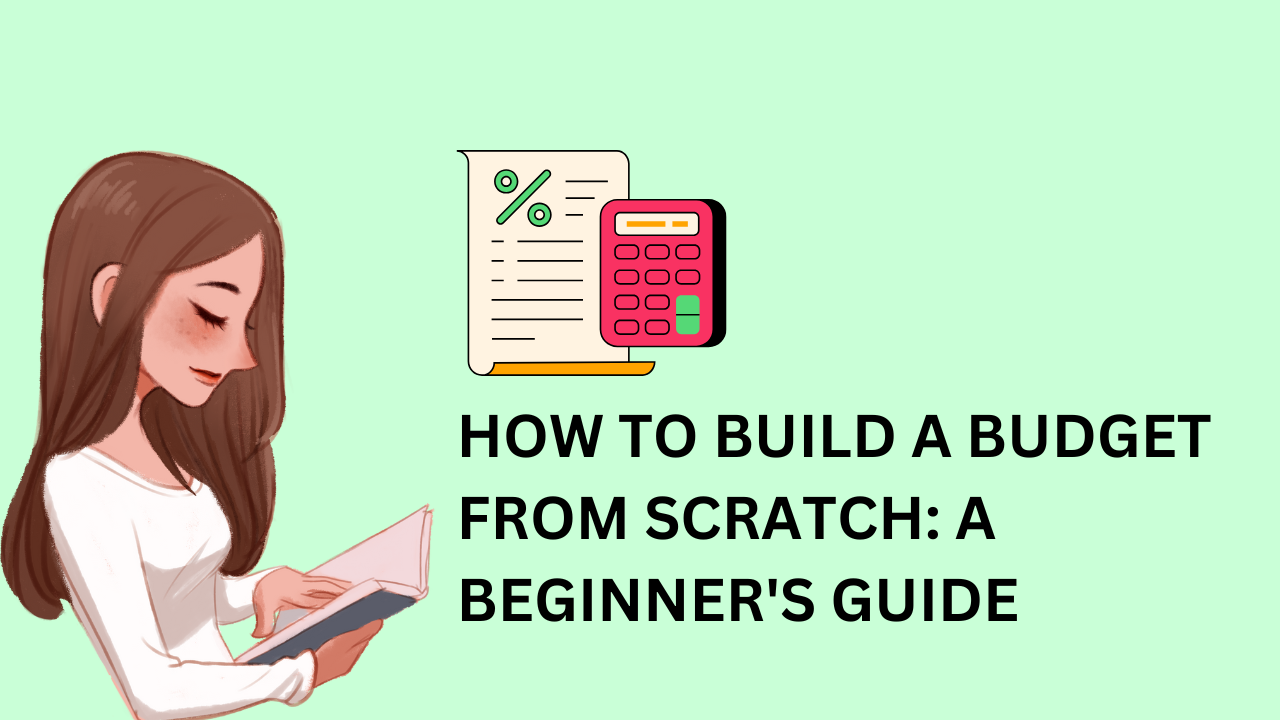Did you know that 64% of Americans live paycheck to paycheck? If that statistic makes you pause, you’re not alone. Many people struggle with managing their money, but the good news is that understanding What is Personal Finance can change everything. Whether you’re saving for a dream vacation, planning for retirement, or just trying to make ends meet, personal finance is the key to taking control of your financial life. In this guide, we’ll break down everything you need to know about personal finance, from the basics to actionable steps you can take today.
What is Personal Finance? Breaking Down the Basics
Let’s start with the basics: What is Personal Finance? Simply put, personal finance refers to how you manage your money. It includes everything from budgeting and saving to investing and planning for the future. Think of it as the roadmap that helps you make smart financial decisions to achieve your goals.
But why does it matter? Because personal finance isn’t just about numbers—it’s about your life. It’s about having enough money to pay your bills, save for your dreams, and enjoy peace of mind. Without a solid understanding of personal finance, it’s easy to fall into debt, miss out on opportunities, or feel overwhelmed by financial stress.
For a deeper dive into the definition, check out Investopedia’s guide to personal finance.
The 5 Key Components of Personal Finance
Personal finance isn’t just one thing—it’s a combination of several important areas. Here are the 5 key components you need to focus on:
1. Budgeting
Budgeting is the foundation of personal finance. It’s about creating a plan for how you’ll spend and save your money. A popular method is the 50/30/20 rule:
- 50% for needs (rent, utilities, groceries).
- 30% for wants (entertainment, dining out).
- 20% for savings and debt repayment.
2. Saving
Saving is all about setting aside money for emergencies, goals, or future needs. Whether it’s a rainy-day fund or a down payment for a house, saving ensures you’re prepared for whatever life throws your way.
3. Investing
Investing is how you grow your wealth over time. It’s about putting your money to work through stocks, bonds, real estate, or other assets. The earlier you start, the more you benefit from compound interest.
4. Debt Management
Debt can be a major roadblock to financial freedom. Managing debt means paying off loans and credit cards while avoiding high-interest traps.
5. Retirement Planning
Retirement might seem far away, but planning for it now is crucial. Whether it’s through a 401(k) or an IRA, saving for retirement ensures you’ll have enough to live comfortably later in life.
For more tips on budgeting, check out NerdWallet’s budgeting guide.
Why Understanding Personal Finance is Crucial
So, why does personal finance matter? Here’s the truth: ignoring personal finance can lead to serious consequences. Without a budget, you might overspend and fall into debt. Without savings, an unexpected expense could derail your finances. And without investing, you could miss out on opportunities to grow your wealth.
On the flip side, mastering personal finance comes with incredible benefits. It gives you the freedom to pursue your dreams, the security to handle life’s challenges, and the peace of mind that comes with knowing you’re in control.
For more insights, read Forbes’ article on financial literacy.
How to Take Control of Your Personal Finance
Ready to take control of your finances? Here’s how to get started:
1. Track Your Spending
The first step is understanding where your money goes. Use apps like Mint or YNAB to track your spending and identify areas where you can cut back.
2. Create a Budget
Once you know where your money is going, create a budget. The 50/30/20 rule is a great place to start, but feel free to adjust it to fit your needs.
3. Build an Emergency Fund
Life is full of surprises, and an emergency fund ensures you’re prepared. Aim to save 3-6 months’ worth of living expenses.
4. Pay Off Debt
If you have debt, make a plan to pay it off. Consider strategies like the snowball method (paying off the smallest debts first) or the avalanche method (tackling high-interest debts first).
5. Start Investing
Investing is one of the best ways to grow your wealth. Start small with low-cost index funds or ETFs, and consider platforms like Vanguard or Fidelity.
For a beginner’s guide to investing, visit Vanguard’s investment guide.
5 Mistakes to Avoid in Personal Finance
Even with the best intentions, it’s easy to make mistakes. Here are 5 common pitfalls to avoid:
- Living Beyond Your Means: Spending more than you earn is a recipe for disaster.
- Not Having an Emergency Fund: Without a safety net, unexpected expenses can derail your finances.
- Ignoring Retirement Savings: Start early to take advantage of compound interest.
- Falling for Get-Rich-Quick Schemes: If it sounds too good to be true, it probably is.
- Failing to Educate Yourself: The more you know about money, the better decisions you’ll make.
For more on financial mistakes, check out CNBC’s article on common money mistakes.
Top Tools and Resources to know What is Personal Finance
Managing your money doesn’t have to be complicated. Here are some tools and resources to help you get started:
- Budgeting Apps: Mint, YNAB, PocketGuard.
- Investment Platforms: Robinhood, Fidelity, Betterment.
- Educational Resources: Books like “Rich Dad Poor Dad“ or podcasts like “The Dave Ramsey Show.“
How to Master Personal Finance for Long-Term Wealth
Personal finance isn’t just about paying bills—it’s about building wealth. Here’s how to set yourself up for long-term success:
- Leverage Compound Interest: The earlier you start investing, the more your money grows.
- Diversify Investments: Spread your money across stocks, bonds, and real estate to reduce risk.
- Plan for Retirement: Contribute to a 401(k) or IRA to secure your future.
For more on compound interest, visit Investopedia’s guide.
Mastering Personal Finance: Your Path to Financial Freedom
Understanding What is Personal Finance is the first step toward taking control of your money. By creating a budget, saving consistently, and investing wisely, you can achieve financial freedom and build the life you’ve always wanted. Remember, it’s never too late to start. Take the first step today, and watch your financial future transform.
Frequently Asked Questions About Personal Finance
What is personal finance?
Personal finance is the process of managing your money, including saving, investing, and budgeting.
Why is personal finance important?
It helps you achieve financial goals, avoid debt, and secure your future.
How do I start managing my personal finance?
Begin by tracking your spending, creating a budget, and building an emergency fund.
What are the key components of personal finance?
Budgeting, saving, investing, debt management, and retirement planning.
What tools can help with personal finance?
Apps like Mint, YNAB, and investment platforms like Vanguard or Fidelity.
Please subscribe Easy Budget to stay updated about our latest blogs!















